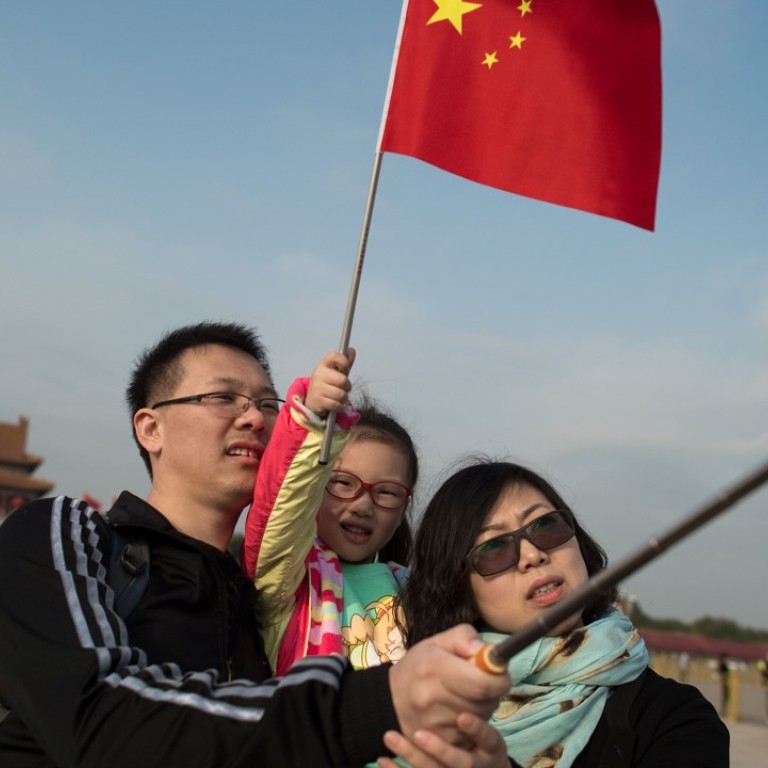
Flexible working options not just wanted by Asia’s mothers, but by fathers too
Men in China are the most in favour of flexible working options to allow them to take care of their families, but say parental leave entitlement is short, a survey by recruitment firm Hays finds
While many companies in Asia offer flexible working hours for mothers to take care of young children, they may need to expand the scope of their policies after a study found that men across the region also wanted similar treatment.
More men than women ranked flexible working hours as important, according to “The 2017 Asia Gender Diversity Report” by international recruitment firm Hays, which surveyed employees in more than 30 industries across China, Hong Kong, Japan, Singapore and Malaysia.
“Flexible working is still seen very much as something that benefits working mothers, but our latest research shows that companies developing flexible work policies have to take a broader view,” said Dean Stallard, managing director of Hays Hong Kong.
“We were surprised to find half of all male respondents in Asia already have access to flexible work options compared to just 40 per cent of our female respondents,” Stallard said.

Taking care of young children or elderly parents was the main reason for both men and women to want flexible working hours, either through leaving work early or taking days off, the report found.
Mainland Chinese, both men and women, were the most in favour of having flexible hours for parents, at 37 per cent, while 34 per cent in Malaysia, 29 per cent in Japan and 26 per cent in Hong Kong supported the idea.
By gender, 40 per cent of mainland male respondents rated flexible working as very important, more than women at 38 per cent.
In Hong Kong, by contrast, only 18 per cent of male respondents rated flexible hours as highly important, compared to 38 per cent of women.
The report also showed there were increasing number of companies offering flexible hours. However, mothers were getting more support than fathers in all Asian countries, it showed.
Mainland China was again in the lead as the most supportive to fathers, with 62 per cent of male respondents saying they could get parental leave to take care of their newborn babies, the highest percentage across the region.
In Singapore, 58 per cent of fathers said they could get parental leave, while the figures were 50 per cent for Malaysia, 47 per cent for Hong Kong and 25 per cent in Japan.
Most fathers, however, said the leave they could get was shorter than that for mothers. In mainland China, only 11 per cent of fathers could get the same leave entitlement as mothers. In Malaysia, 31 per cent said there was no leave offered to fathers.
About 21 per cent of women and 20 per cent of men thought that taking flexible working hours could affect their careers, the report found.
Other flexible working programmes and recent surveys in Hong Kong have shown both that male employees are as keen as women to have flexible hours and that more companies are embracing the idea of flexible working.
A “Return to Work” programme run by investment bank Morgan Stanley at its offices around the world, which is designed to help those who take a break from their careers to get back to work, also showed that more men are seeking flexible hours for family reasons. While 80 per cent of the Hong Kong applicants to the programme are mothers looking for a break to take care of young children, 20 per cent are men who also want to take a break in their careers to fulfil their family responsibilities.
Separately, a survey of Hong Kong accounting companies by consultants EY in September showed medium-size firms are also starting to embrace the idea of supporting employees who want to have flexible working hours or to work on a part-time basis. The survey showed that 22 per cent of senior executives of such firms were willing to accept staff who wanted to work flexible hours or part time.
“The younger generation of employees are more in favour of the gig economy and they like to take on short-term contracts or more flexible working hours instead of a full-time commitment,” said Agnes Chan Sui-kuen, managing partner for Hong Kong and Macau at EY.
“Hong Kong employers are willing to offer more flexibility to employees to attract talented younger people,” Chan said.
A separate recent study by accountancy industry body CPA Australia found that 24.2 per cent of Hong Kong workers believed that adopting flexible working hours would positively impact work performance.

